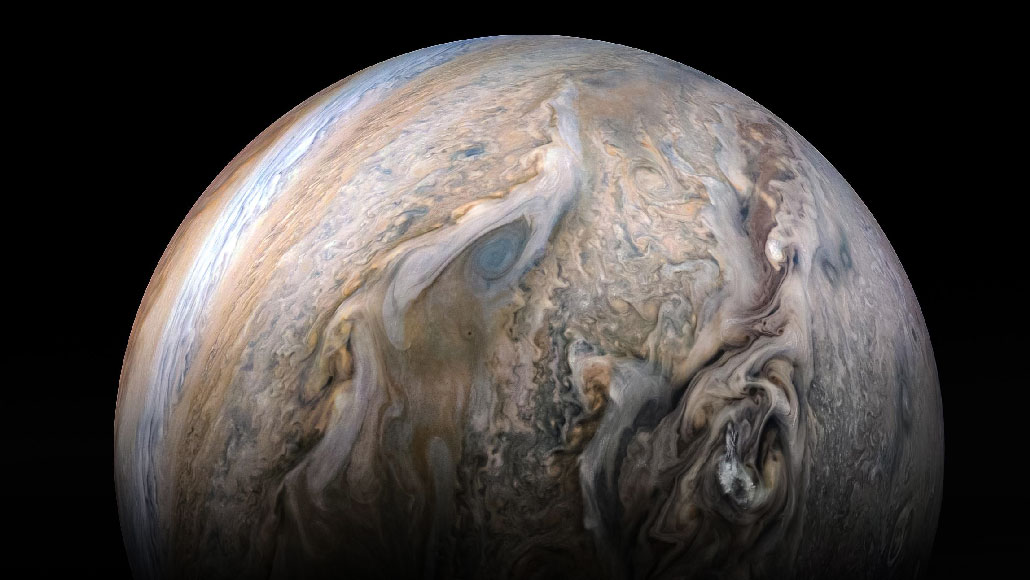
Jupiter, shown in an image from NASA’s Juno spacecraft, has a whopping 79 moons. Five recently spotted ones now have official names.
JPL-Caltech/NASA, SwRI, MSSS, Kevin M. Gill

Jupiter, shown in an image from NASA’s Juno spacecraft, has a whopping 79 moons. Five recently spotted ones now have official names.
JPL-Caltech/NASA, SwRI, MSSS, Kevin M. Gill